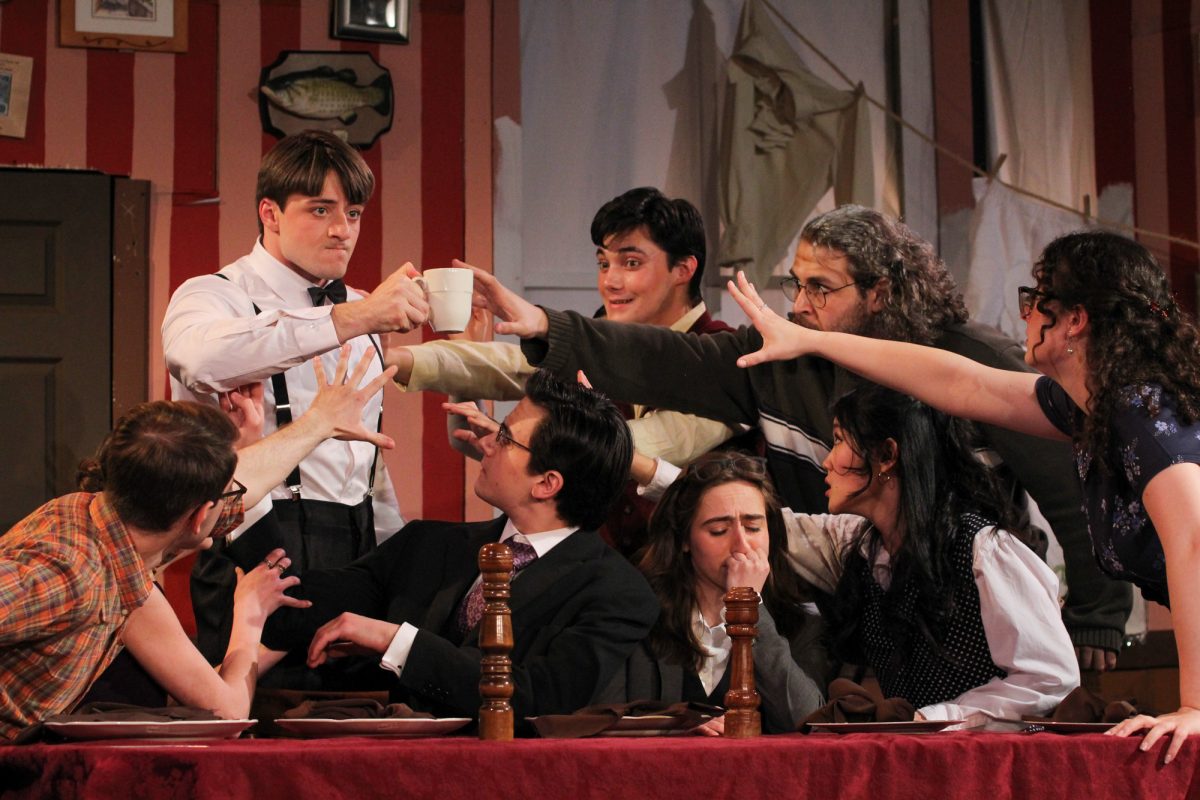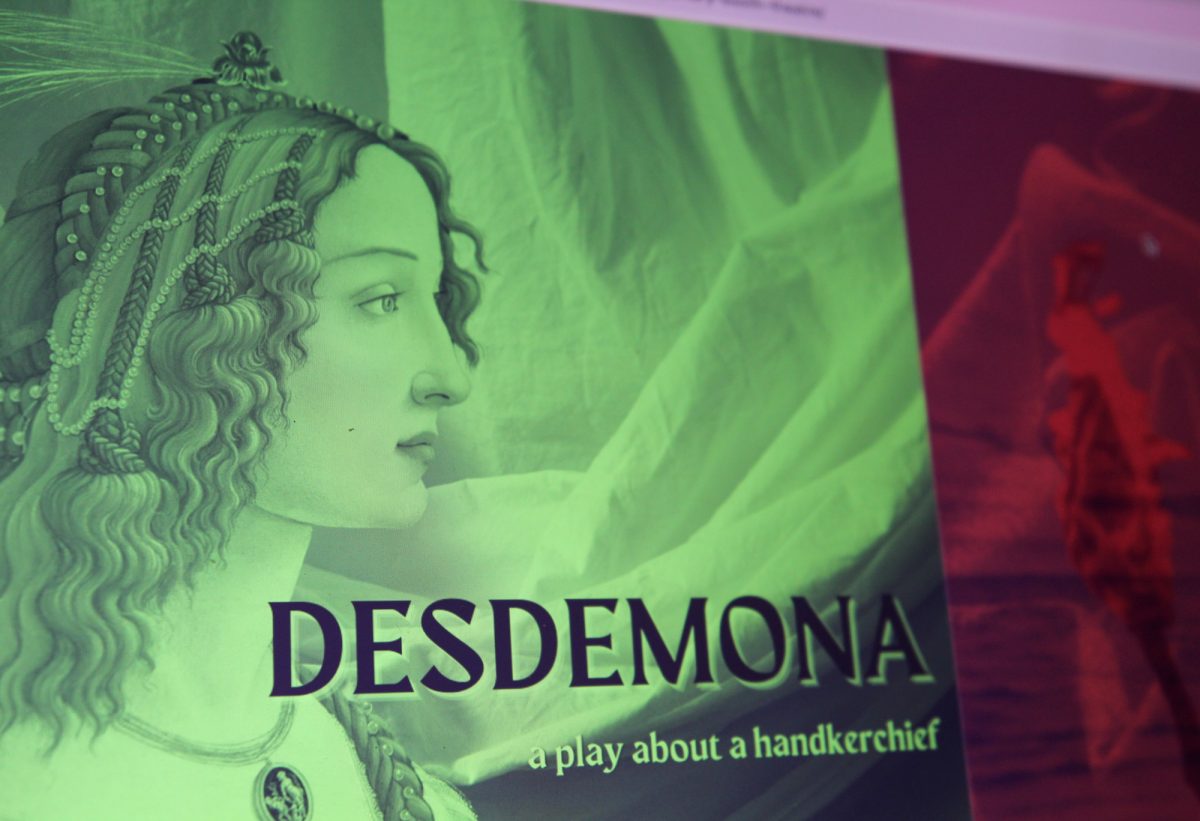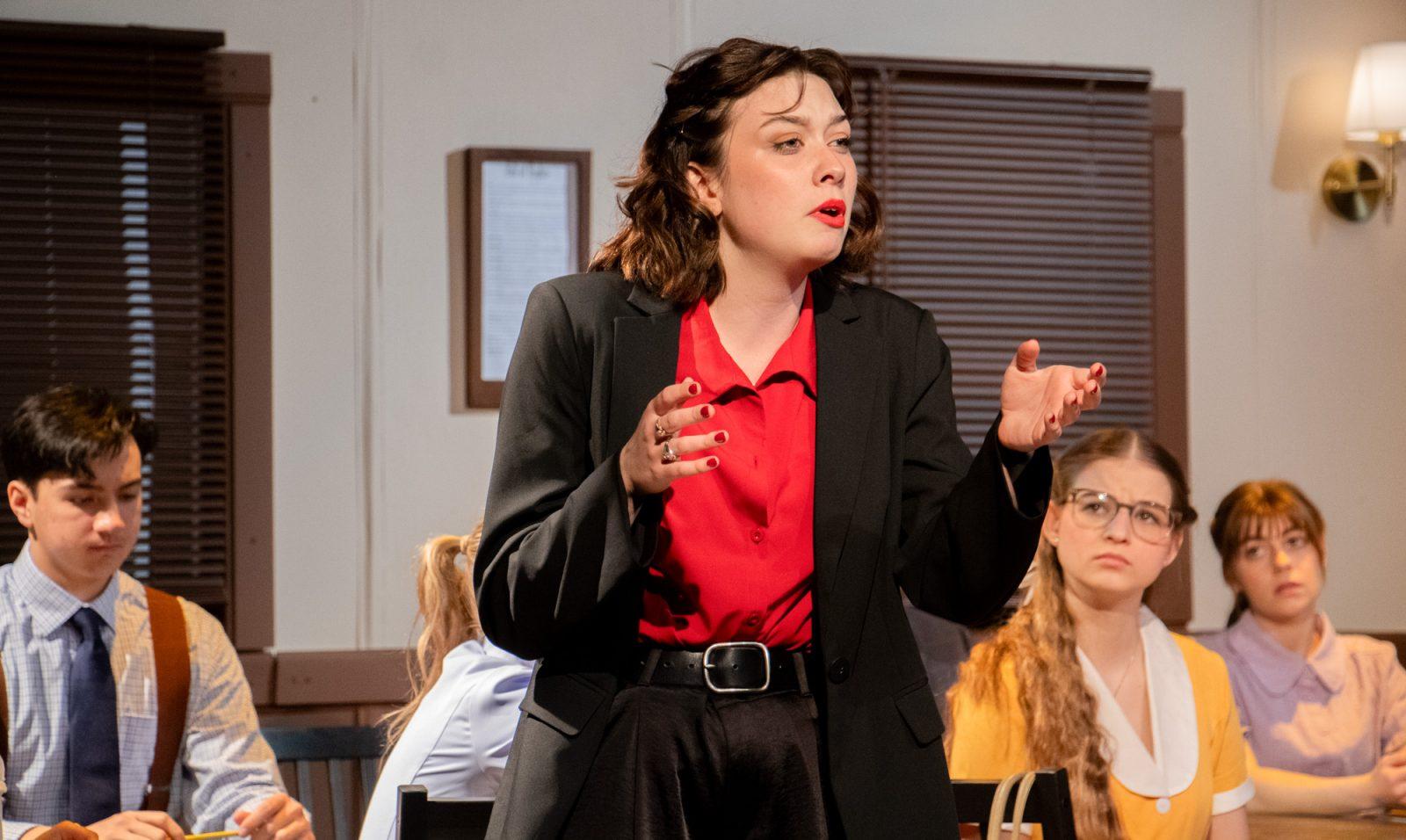Content Warning: This article discusses sexual assault.
The “Good for Her” cinematic universe refers to a fan-made subgenre featuring accomplished girl bosses in modern film. Mostly, the women overcome adversity — often in the pursuit of revenge against men or the patriarchal society — for a satisfying or happy ending. Think Florence Pugh in “Midsommar” or Rosamund Pike’s masterful “Gone Girl” — both movies praised for their intricate expression of female agency.

The case of Lorena Bobbitt, who castrated her husband John Wayne Bobbitt’s with a knife in 1993 after his persistent abuse to her, was a spectacle in the tabloids. While Lorena’s trial went on, the media consistently focused on her crime, not the obvious sexual and physical abuse that came to light in the trial.
To a certain degree, this case seemed to hold all the same appeal to American households as the “Good for Her” arches seen in contemporary cinema.
The playwright Eliana Pipes uncovers a deeper story in the sensationalized chronicle through “Lorena: a Tabloid Epic” — a part of Boston University’s New Play Initiative and produced by Boston Playwrights’ Theatre and the College of Fine Arts School of Theatre.
The play makes the brave decision to break the fourth wall, creating an interactive experience for the audience. It succeeds in its combination of Greek theatrics and elements reminiscent of the ’90s.
The playful pokes at third-wave feminism and gender exclusivity in the performance were enjoyable. Every shock-tactic hit the nail right on the head — and when the ceiling pooped out a 14-inch purple penis in perfect comedic timing, “Lorena” had locked me in.
Still, amid these theatrics, Pipes unforgettably got to the core of the case. The John character cosplays as Freddy Kreuger, sparking protest from Lorena in the play. Lorena points out that we cannot just make rapists out to be monsters — they are human, making the terrible acts they commit even more unnerving. Just like Howard Stern, also impersonated in the play, who repeatedly ostracized and mocked Lorena while giving John a platform — human.
Stern was not the only celebrity susceptible to impersonation in this performance. One sequence in a presumed homage to “Chicago”’s sensational “Cell Block Tango” introduced us to the aftermath of three infamous female martyrs of American media: Tonya Harding, Amy Fisher and Monica Lewinsky. All were targets of harsh media criticism that pale in comparison to their male counterparts. I was only left disappointed there was no musical number.
I was almost concerned that the penis would accidentally become the star of the show, but perhaps this was a deliberate distraction. The character is played by a member of the chorus, who recounts moments of freedom in which it was able to jump around in nature, no longer being used to inflict pain through repeated sexual assault of Lorena. How genius the mind of Pipes must be to incite sympathy for a severed schlong.
Numerous times throughout, John Bobbitt’s castration is referred to as the “worst thing that could happen to a man.” One character even said they would “rather die” if that happened to them. But, as Pipes articulates, the worst thing that could ever happen to a woman happens all the time, and no one bats an eye. So, Lorena was declared temporarily insane whilst John faced no repercussions, going on to continue a pattern of assault and battery against women.
It is interesting to note the omission of ethnicity in this play’s conversation of media vendetta against Lorena and its capitalization off John. The media took every chance to exploit the crazy, hot-headed Latina headline (Bobbitt is an immigrant, originally from Ecuador).
At its core, this narrative aims to speak of the universal woman experience. This becomes apparent in the final scene featuring a touching closing monologue on sexual assault by actress Valyn Lyric Turner.
“Lorena” begs the question if women can ever truly heal from their assault, especially in a society that finds any reason to demonize women and let men walk free. The “Good for Her” resolution is neither realistic nor helpful. So, without reason or retribution, how do victims of sexual assault move forward?
“Lorena: A Tabloid Epic” is epic.






























































































































